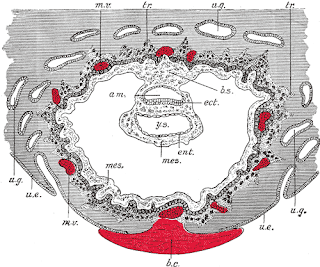Lymphoma Studies on Foods that Help to Lower Cancer Cell Growth
I made a list of things that help to reduce lymphoma cancer growth, these are easy to google and decide for yourself and you may find more information, these links are short and summarised simply as pointers to make you aware they have been tried in studies, so you know.
They effect cancer pathways so any treatments like chemotherapy or radiation are likely to be more effective.
I have collated a similar set of studies on the same types of foods and herbs here to show the added effect they have on chemotherapy.
This list complements understanding of the lymphoma studies.
Glioma brain tumor studies on foods and herbs that potentiate chemotherapy
Bromelain is a blood thinner and one of the best anticancer substances that also potentiates chemotherapy to make it work.
Bromelain cleaves CD44 molecules from cancer cells so they can't spread.
Serum CD44 in non-Hodgkin's lymphoma
ECGC is in green tea, green tea is a heat shock protein inhibitor and stabilizer as well. By inhibiting heat shock proteins green tea also stops MMP enzymes from cancer cells causing cell damage.
MMP enzymes degrade collagen which then allows tumours to spread into areas where the collagen has dissolved.
(−)-Epigallocatechingallate induces apoptosis in B lymphoma cells
Curcumin is in turmeric and EGCG is in green tea but don’t take bromelain at the same time as turmeric as they are both blood thinners. Different times or days.
Curcumin and EGCG Induce Remission in B-cell Non-Hodgkin's Lymphoma Patient
If using warfarin blood thinners then avoid bromelain, curcumin, or turmeric.
Papaya leaf tea makes your blood cells grow and platelets come back so if using the blood thinners above, papaya leaf tea still works on blood cancers while helping blood cells and platelets to grow.
If you use green tea and papaya leaf, perhaps get some rosemary to add as rosemary is an anti-cancer herb and helps protects you from chemo liver damage, maybe peppermint for taste.
Coffee plungers are easy to mix teas, generally a heaped teaspoon is a good guide for each or one teabag.
Aqueous extract of Carica papaya leaves exhibits anti-tumor activity and immunomodulatory effects
Retinoic acid or vitamin A is in red, orange, yellow veggies, or in cod liver oil with vitamin D and may be quite important.
Treatment of cutaneous T-cell lymphoma with retinoids
In the question of balancing DNA nutrients for cancer, vitamin A hypomethylates DNA and is a nutrient that switches on some cancer suppressing genes.
You need some selenium and nutrients like folate as a methylation balance for vitamin A, (perhaps get folate from eating a variety of green vegetables, not as a supplement as folate encourages growth), you also need vitamin B12 from meat to enable methylation of cells and perhaps vitamin B6.
B6 may be needed if either ferritin levels are high in a standard blood test or if ferritin iron stores are low with anaemia occurring.
Any unused iron indicated from high ferritin stores is a risk for feeding cancer, and B6 along with adequate folate, B12 and vitamin C pulls iron back into the blood. These are basic vitamins to prevent anaemia.
Vitamin B6 along with folate and B12 are the main nutrients for making red blood cells but vitamin B6, folate and B12 are also methylation nutrients.
Selenium affects methylation in our DNA and a safe selenium dose can be obtained by eating 2 Brazil nuts a day.
‘Dietary selenium intake was significantly decreased in patients than in controls’
All purple-coloured veggies with anthocyanins are anticancer, which are all berries and red grapes. Other anthocyanin-rich foods include purple corn, pomegranate, eggplant, black carrots, red cabbage. Beetroot has anticancer effects, but the purple colour is not from anthocyanins.
‘Higher intakes of flavonols, epicatechins, anthocyanidins, and proanthocyanidins were each significantly associated with decreased NHL risk.’
Dietary flavonoid intake and non-Hodgkin lymphoma risk
All berries and red grapes also contain resveratrol.
Cellular and Molecular Targets of Resveratrol on Lymphoma and Leukemia Cells
As any chemo can cause severe nausea, ginger is worth using, I think the sushi ginger is easiest to eat but any types in any food will help.
‘To the best of our knowledge, this is the first study that reveals the antileukemic effect of ginger extract on both, pediatric ALL (or Acute lymphoblastic leukemia) cell lines and primary cells.’
Ginger extract has anti-leukemia and anti-drug resistant effects on malignant cells
Celery has a compound called luteolin which is likely to make any chemo work.
Luteolin is also a heat shock protein inhibitor, they use chemical versions of heat shock protein inhibitors on lymphomas, green tea, is also an inhibitor, and this list below is safe.
‘Luteolin is particularly present in fruits and vegetables, such as celery, chrysanthemum flowers, sweet bell peppers, carrots, onion leaves, broccoli, and parsley.’
Luteolin, a flavonoid, as an anticancer agent: A review
Chewing celery and spitting out the bits also fixes the kidneys, three important things to watch with cancers are feeding them too much sugar, too much iron, or the build-up of uric acid crystals in gout.
Celery helps that by removing uric acid, uric acid causes immune inflammation and becomes a cancer risk from attempts by the immune system to remove the uric acid.
As any chemo starts killing cancer cells there will also be a build-up of uric acid from the dying cancer cells that needs removing through the kidneys.
Moderate sunlight may be needed for vitamin D.
‘Recent epidemiologic studies demonstrate a reduction in non-Hodgkin lymphoma (NHL) risk with increased sunlight exposure.’
Vitamin D and Non-Hodgkin Lymphoma Risk in Adults: A Review
Also be aware of computer use at night or ‘light at night’ getting in the way of good sleep and melatonin as light sources after dark wreck your melatonin which is needed for proper sleep.
Cherries have melatonin and a few at night may help sleep, a supplement can be used.
Therapeutic potentials of melatonin in the treatment of lymphoma: A review of current evidence
Hope this helps.
Other cancer information is in these links.
Other links
Gastric Cancer Studies on Everyday Foods
Macrophage Polarization and IDO Enzymes, Immunity, Cancer and Depression Feb 2020
The Pregnancy Cancer Connection 2012






Comments
Post a Comment